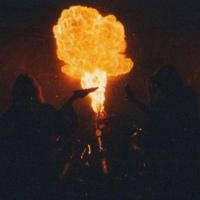
1 314
Subscribers
-224 hours
-97 days
-3330 days
- Subscribers
- Post coverage
- ER - engagement ratio
Data loading in progress...
Subscriber growth rate
Data loading in progress...
I AM BACK! Follow my new account, I will be posting from there from now on
Repost from Martinez Politix
Matt Walsh calls out anti-White bias.
He's getting more based by the day.
@martinezpolitics1
“ It is the noble races that have left behind them the concept 'barbarian' wherever they have gone; even their highest culture betrays a consciousness of it and even a pride in it (for example, when Pericles says to the Athenians in his famous funeral oration 'our boldness has gained access to every land and sea, everywhere raising imperishable monuments to its goodness and wickedness"). This 'boldness' of noble races, mad, absurd, and sudden in its expression, the incalculability, even incredibility of their undertakings-Pericles specially commends the rhathymia of the Athenians-their indifference to and contempt for security, body, life, comfort, their hair-raising cheerfulness and profound joy in all destruction, in all the voluptuousness of victory and cruelty-all this came together, in the minds of those who suffered from it, in the image of the
'barbarian,' the 'evil enemy,' perhaps as the
'Goths,' the 'Vandals.
Friedrich Nietzsche, On the Genealogy of Morals
"A slave is one who waits for someone to come and free him."
~Ezra Pound
"Now the slave is a free man, now all the rigid and hostile boundaries that distress, despotism or “impudent fashion” have erected between man and man break down. Now, with the gospel of world harmony, each man feels himself not only united, reconciled, and at one with his neighbour, but one with him, as if the veil of Maya had been rent and now hung in rags before the mysterious primal Oneness." Friedrich Nietzsche, The Birth of Tragedy
